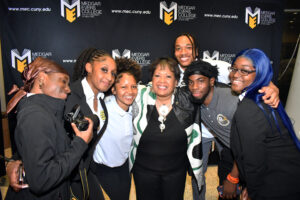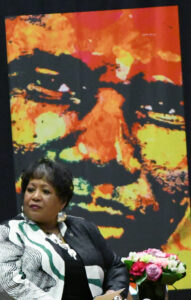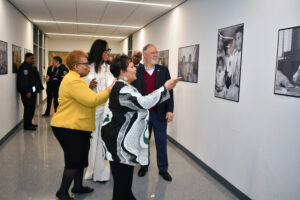Commencement 2025: ‘The Unfinished Work’ — a reflection on the legacy of Medgar Wiley Evers from his daughter

By Reena Evers-Everette | Daughter of Medgar Wiley Evers
It is an honor to reflect on the life and legacy of my father, Medgar Wiley Evers, whose commitment to education, community, and justice continues to guide and inspire us. As we mark this moment of achievement for this year’s graduates, we are reminded that education is more than a personal milestone — it is a collective responsibility and a powerful instrument for change.
My father believed in education not just as academic attainment, but as a lifelong pursuit of truth and justice. From segregated schools in Mississippi to graduating from Alcorn College, he understood that learning could equip people to challenge systems of oppression and to claim their full humanity. He saw education as the groundwork for civic participation, leadership, and self-determination — especially for Black communities in the deep South.

But education, for him, was inseparable from community. As the NAACP’s first field secretary in Mississippi, my father taught citizenship classes and organized voter registration drives. He helped integrate universities; all rooted in the belief that informed people could move mountains. His fight was not just about gaining access to schools or the ballot box, but creating a society where justice, dignity, and equality were more than distant promises.
One of my father’s most powerful reminders was, “Our only hope is to control the vote.” He knew that education must lead to action — that knowledge must move people to organize, to speak up, and to challenge injustice wherever it exists.
That message remains just as urgent today.
We see that urgency in the continued fight against racial disparities in education, healthcare, and housing. We feel it in the demand for justice for those whose lives have been cut short by systemic violence. And we see it in the courageous work of today’s young leaders — advocating for climate justice, inclusive schools, and fair representation.
You are the inheritors of a legacy that insists we do not wait for change; we create it.
To the graduates: this moment belongs to you, but your future belongs to us all. Use your knowledge to heal, lead, and imagine a more just world. Invest in your community. Question what you inherit and rebuild what is broken. Carry forward the work my father and so many others began — not as a burden but as a beautiful and necessary calling.
Congratulations. The struggle continues — and so does the hope.
